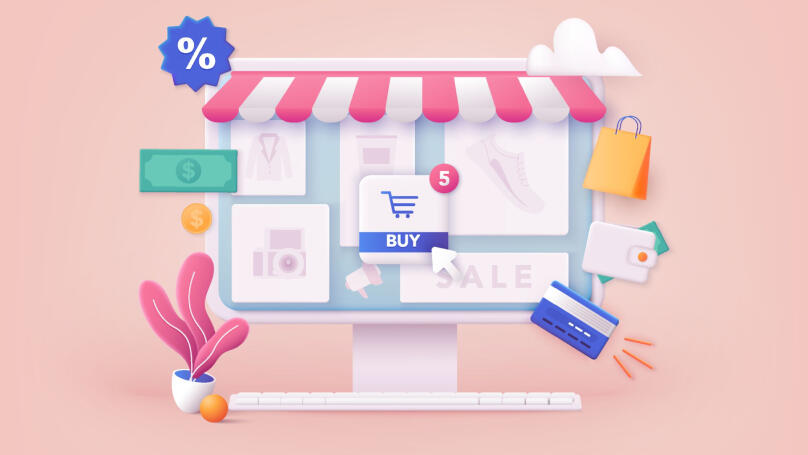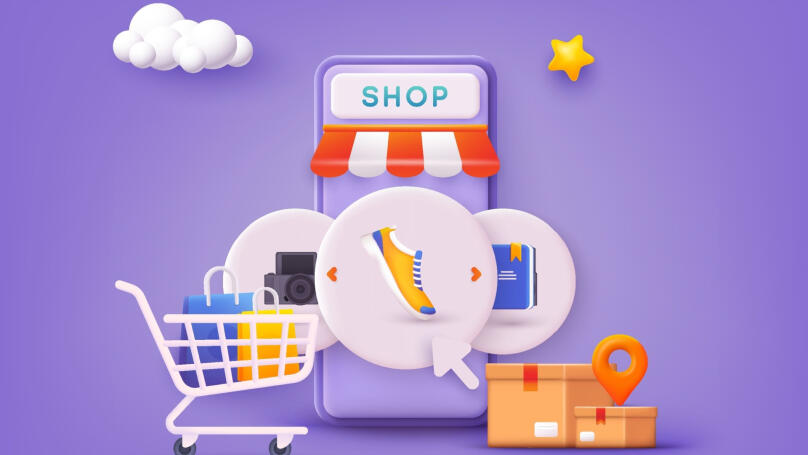Marketplace

What is a marketplace?
A marketplace is a digital platform that facilitates the buying and selling various goods online. Essentially, marketplaces act as intermediaries connecting sellers to potential buyers, streamlining the process of commerce.
While marketplaces don't directly sell products themselves, they play a vital role in promoting products and boosting the sales of vendors (sellers).
What is an online marketplace?
Marketplace implies that trading takes place online, which is why it is called an online platform. Thus, the definition of an online marketplace is a platform where buying and selling activities are facilitated over the Internet.
To grasp the distinctions between a brick-and-mortar marketplace and an online one, consider comparing Amazon with a local shopping mall in your city. Both aim to allow sellers to showcase their products and services and enable buyers to purchase them; essentially, they both provide a marketplace. However, the distinction lies in the mode of operation. Amazon's platform facilitates buying and selling transactions virtually without needing a physical presence. In contrast, sellers are expected to have a physical presence in a traditional shopping mall, and customers must be on-site to make their purchases.
Marketplace vs online store and aggregator
You can hear popular marketplaces referred to as online stores, but this is far from the truth. Despite their similarities, they are two different e-commerce models.
Both marketplaces and online stores are digital trading platforms on the internet. However, marketplaces host a multitude of sellers offering a diverse range of products, while online stores are typically owned and managed by a single seller or company.
Thus, marketplaces provide a much more comprehensive range of products from various companies. And the online store sells products exclusively from its owners. In addition, many online stores also have offline points of sale, while the geography of marketplaces is so vast that they are limited only to pick-up points.
Many companies diversify their online presence by having their online store and featuring their products on marketplaces. However, it's crucial to distinguish between a marketplace and an aggregator site. The primary differentiation lies in the sales function. Aggregators don't sell products directly; they offer information, gather reviews, compare prices, and direct customers to sites where the desired products can be purchased.
How the marketplace works

The operation of a marketplace follows a specific procedure. Initially, a company or an individual entrepreneur wanting to sell on the marketplace sets up an account and accepts its terms. Each marketplace provides unique electronic registration forms for new sellers tailored to its platform's specifics and guidelines.
Once registered, sellers upload detailed product information, including photos and descriptions. They can store their products in the marketplace's warehouse for a fee or in their own facilities. When products are stocked in the warehouse, their availability should be updated on the marketplace website.
Customers then search the marketplace, order their desired products, and either pick them up or have them delivered. Deliveries can be managed by the marketplace's own courier service or by the seller. Once the order is fulfilled and paid for, the marketplace processes the payment to the seller, retaining a commission from the sale.
So, there are several models of seller-marketplace cooperation. They depend on what obligations both parties make, for example:
-
Fulfilment by operator or FBO is when the marketplace implements the entire range of operations from when the customer places an order to when they receive the purchase. In other words, market activities include storing and packaging goods, as well as delivering them.
-
Fulfilment by seller or FBS - in this case, the seller stores the product in its warehouse and packs it on its own, while the marketplace delivers the product to the end consumer.
-
Delivery by seller or DBS -the seller stores, packs, and delivers the goods to the buyer. In this case, the marketplace only demonstrates the seller's products on the site and accepts payment.
Each marketplace sets its rates for the storage, packaging, and delivery of goods provided. In most cases, these amounts depend on the shelf life and dimensions of the product.
Features of online marketplaces
The most critical features of marketplaces that attract most novice sellers are:
-
You can sell almost anything
Naturally, we are not talking about things prohibited by law. However, as long as the products don't harm individuals or their health, a wide variety of items can be sold. Household items, appliances, stationery, and construction tools are commonly found on marketplaces. Also popular are clothing and footwear, even though they can't be tried on before purchase.
-
Goods can be returned
First and foremost, this is what attracts buyers. Most sellers on marketplaces, especially those selling clothing and footwear, provide the opportunity to return a product that does not meet the buyer's expectations.
-
You can deliver goods all over the country and even abroad
All marketplaces have logistics systems: warehouses, courier services, and pick-up points. For example, the Chinese platform AliExpress allows you to deliver goods almost worldwide. Such fulfilment is just impossible and unprofitable for average online stores. So many sellers use marketplace warehousing services. Additionally, sellers often opt to use the marketplace's delivery services instead of hiring their own couriers. However, it's worth noting that logistics services have a fee, which varies by marketplace.
-
Commission on sales
The commission on sales is one of the biggest revenue streams for marketplaces. Each marketplace establishes its commission rates, a percentage of the product's sales. These rates can differ based on the product category, such as children's items, sports equipment, or electronics. On average, commission fees can range from one to twenty percent.
-
Advertisement opportunities
Advertisements are another source of revenue for marketplaces. The vendor pays a fee to place these ads, no matter how much they sell.
Types of online marketplaces

There are several types of marketplaces, depending on the products offered and participants. According to the most general classification, there are:
-
Goods marketplaces;
-
Provision of services;
-
Marketplaces for selling intangible products (e.g., Shutterstock, a platform that provides stock photos, videos, music, and editing tools).
According to the type of goods offered, marketplaces are:
-
Vertical - they specialize in selling goods or providing services of one type. For example, ASOS cooperates with many fashion brands. Still, the range of the marketplace is limited to clothing. Another example is Airbnb, which focuses only on short-term rental accommodation worldwide.
-
Horizontal - these platforms offer different services and products united by a common theme. For example, the Etsy service specializes in buying and selling handicrafts and antiques.
-
Global platforms are platforms that combine various categories of goods or services. That is, you can find almost anything on them. The most famous global marketplaces are eBay, Amazon, and AliExpress.
Marketplaces can also be divided depending on the participants in the trade:
-
Customer to Customer or C2C - on such platforms, both sellers and buyers are individuals who offer each other goods, in most cases used or created with their own hands. For example, the already mentioned Etsy marketplace, where users offer each other to buy handmade products.
-
Business to Customer, or B2C, is when companies or large brands directly offer individuals, i.e., customers, to purchase their goods. This is the most common format of cooperation with marketplaces, for example, the Walmart service, one of Amazon's main competitors.
-
Business to Business or B2B - such marketplaces involve the cooperation of companies with each other, such as the Alibaba service. This is primarily a place for wholesale trade. The owners of various enterprises find suppliers and buy the necessary products directly from manufacturers, plants, and factories.
-
Customer to Business or C2B - here, individuals or freelancers offer their services to entrepreneurs or specific businesses. For instance, Upwork serves as a platform connecting freelancers with potential clients.
Benefits of online marketplaces

Cooperating with marketplaces is beneficial for both entrepreneurs and ordinary users. Online platforms have several advantages:
-
Convenience, user-friendliness, and e-commerce's growing popularity;
-
Starting a business quickly from scratch because marketplaces are a ready-made platform for trade. All you need is to register on the site and source your goods;
-
Savings. There is no need to pay for website development, promotion, and audience attraction or to rent a warehouse and hire couriers;
-
Access to international markets, which is provided by such marketplaces as AliExpress, Amazon, Allegro and others;
-
It is easy to attract an audience and increase awareness, as marketplaces are visited by millions of users every day;
-
Enhanced sales as listing brand products on marketplaces can lead to a surge in customer flow;
-
Marketing opportunities, as marketplaces provide tools for organizing promotions, offering discounts, initiating advertising campaigns, and gathering feedback.
However, along with the advantages, marketplaces also have significant disadvantages, such as:
-
High competition because the main feature of marketplaces is a vast number of sellers on one site;
-
Dependence on the rules and requirements of the marketplace, that is, complying with all the requirements of the trading platform, for example, the packaging of goods and filing documents;
-
Working with a marketplace involves paying a commission, which means relinquishing a portion of the revenue.
However, the benefits of the marketplaces often outweigh their drawbacks when it comes to collaboration. Ultimately, each entrepreneur must assess whether a marketplace can elevate their business. For instance, selling perishable items or luxury goods might not be suitable on a marketplace due to concerns about authenticity and the risk of counterfeit products.
Conclusion
Since the pandemic, marketplaces have grown in popularity and demand. That's when the e-commerce market took off substantially and continues to grow. At the moment, a considerable number of online vendors offer their products through marketplaces, proving their relevance and convenience. Thus, cooperation with marketplaces will help your business attract a new audience and ensure a constant flow of customers. The key is to be bold and use all the opportunities to improve the user experience!























